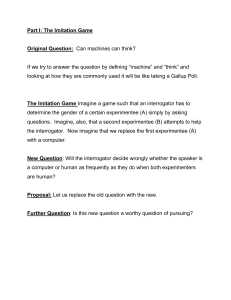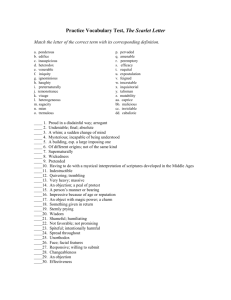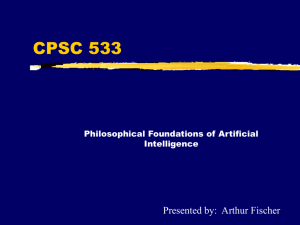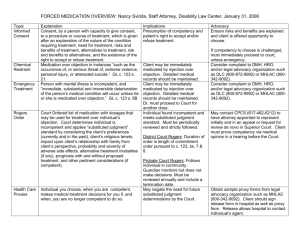100Turing
advertisement
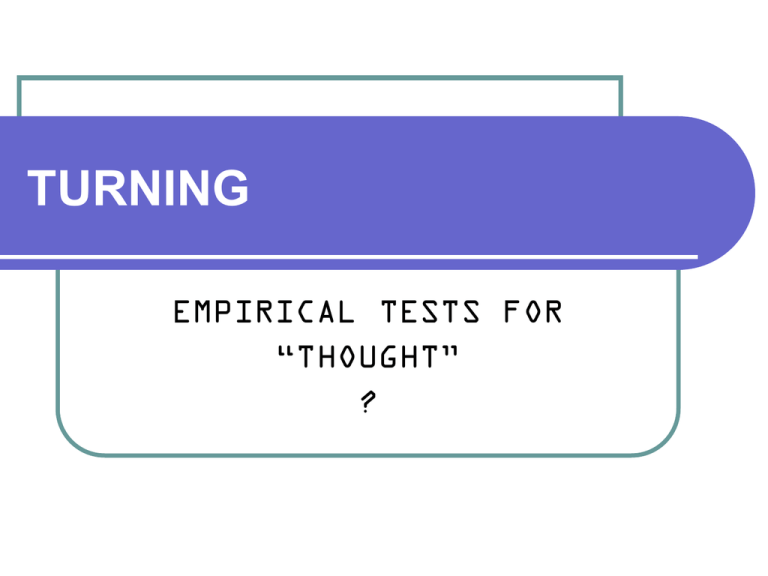
TURNING EMPIRICAL TESTS FOR “THOUGHT” ? Alan Turing (1912 – 1954) Mathematician Created concept of computation before computers Code breaker War hero Victim of prejudice The Imitation Game Three people, A (man), B (woman), C (interrogator). A and B hidden in room and communicate with C by “teletype” [email]. A tries to confuse C. B tries to help. Can C tell which of A and B is the man? [What essential idea is Turing developing?] Machine Imitation Game Suppose an interrogator has to decide which of the two hidden entities is the machine. Could s/he do it? Question: what is a machine? Answer: a digital computer. [digital versus analog] Turing Machines Central Concepts Discrete [digital] State Machines States [finitely many, distinct] Inputs [ditto] Outputs [ditto] Change of state [ditto] Machine table: specifies all possible sets of the above for a given machine. Refinement of Question “Are there imaginable computers which could do well in the imitation game? (324) Turing’s Prediction By the year 2000, “the average interrogator will no have more than 70% chance of making the right identification after five minutes of questioning” (324) Objection 1 The Theological Objection Thinking requires a soul and God gives souls to all humans but to no machines. REPLY: God could give a soul to any animal – if it has a “brain” [sufficiently complex] “to minister to the needs of the soul.” SO: can a machine “brain” be sufficiently complex that God could give it a soul? [We return to the same question again.] Objection 2 “Head in the Sand” Objection The idea is horrible, repulsive, etc. Reply: this sort of objection is merely an expression of our sense of superiority. Objection 3 Argument from Consciousness: Machines will never have feelings. [There is nothing that it is like to be a machine. … Thomas Nagel] REPLY: One has to be a machine to answer the question, but the answer would be rejected. SO: this reply assumes solipsism. Objection 4 Various Disabilities Argument Machines will never be able to “Be kind, resourceful, …fall in love, etc…” Reply: How could you know? [We return to the same question again.] Objection 5 Lady Lovelace’s Objection: Machines do nothing new. REPLY: How do we know we can produce real novelty? How do we know machines cannot? Objection 6 Informality of Behavior Argument [Much like previous argument] People can revise their rules on the run. For example, decide to take day off while en route to UVic classes…. REPLY: So can machines. Learning Machines Machines can learn. Can have legs [arms, hands, etc…. motor capacities], eyes [ears, sensitive skin, etc.], …. SO: Machines could play the imitation game in an even more effective way.
